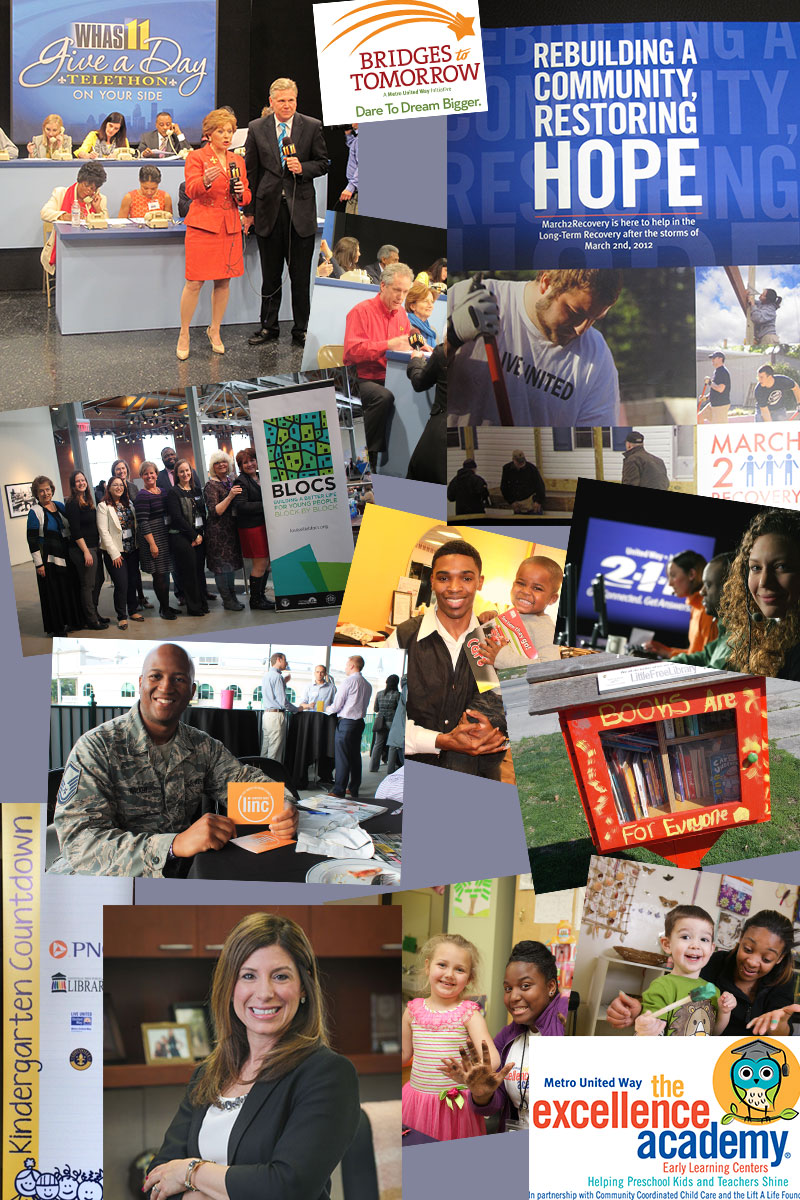
Metro United Way's 100th Anniversary Timeline

The Beginning
The US enters World War 1; Selective service act passed
The English-bred colt "Omar Khayyam" became the first foreign-bred horse to win the Kentucky Derby in 1917.
Metro United Way began in 1917 as the Louisville Federation of Social Agencies, the first of its kind below the Mason-Dixon Line, formed as a volunteer-driven federation to coordinate solicitations for and support of human service agencies.
The first meeting of the Federation's board of presidents was on October 25, 1917. Arthur Allen was elected as the chairman, and W. G. Mun was elected as secretary. Charles W. Allen served as the first campaign chair.
During the first campaign, which was a door-to-door canvas for donations, volunteers raised $108,000 from 5,450 contributors. These funds were distributed to 25 Charter agencies. In 1919, the Federation changed its name to the Welfare League.
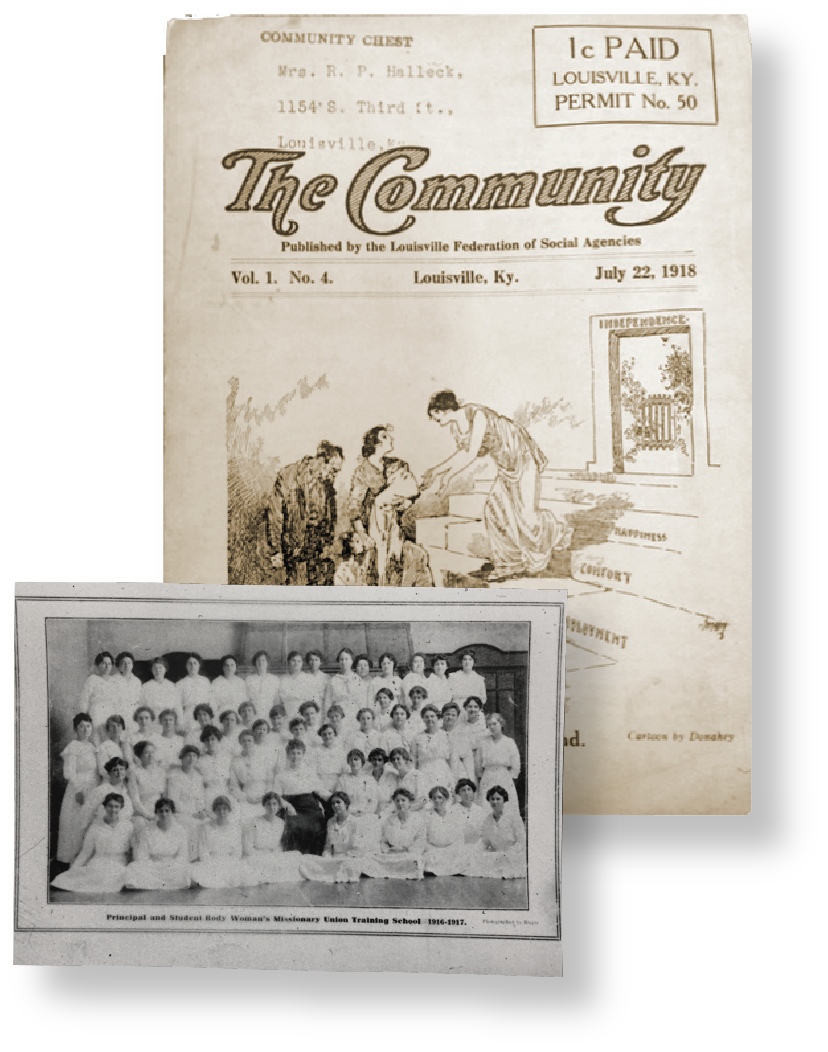

THE 1920's
Nineteenth Amendment giving women the right to vote is passed.
Wall Street markets crashes in 1928.
In 1923, the Welfare League incorporated and changed its name to the Louisville Community Chest. The campaign that year raised $634,999. In 1928, Mary Stotsenburg became the first paid Executive Director, serving in that role until 1953.
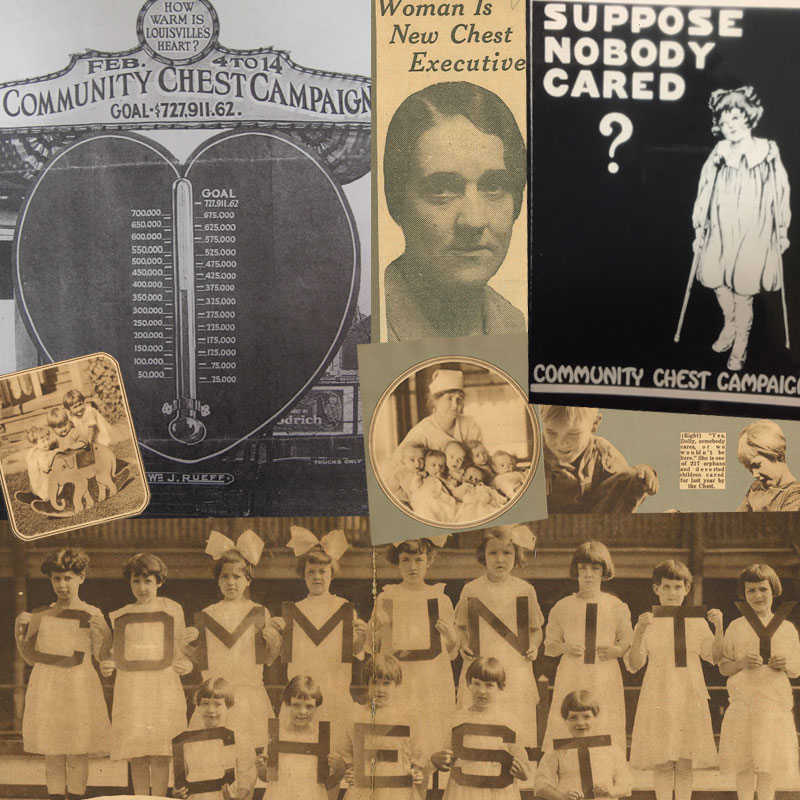

THE 1930's
During January and February 1937, a month of heavy rain throughout the Ohio River Valley prompted the "great Flood of '37", submerging about 70% of Louisville and forcing the evacuation of 175,000.
After the end of prohibition, eight whiskey distilleries opened on 7th Street Road and Louisville attempted to annex them to increase its tax base; they eventually formed a ½ sq. mile city named Shively in 1938.
In 1937, there was a heavy demand for volunteers to help the thousands of people left homeless by the flood of the Ohio River. This led to the development of the Central Volunteer Placement Bureau in 1938, with Mary "Rip" McClure serving as its first president; now known as Metro United Way's Volunteer Connection, it places thousands of volunteers at more than 100 non profit agencies throughout the community each year.
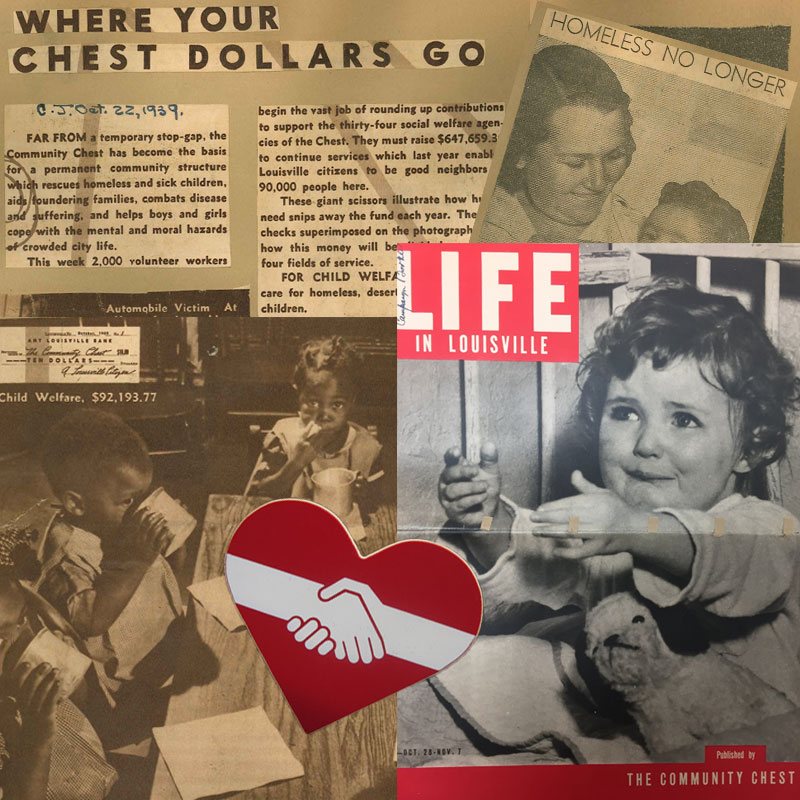

THE 1940's
Federal Food Stamp program is started
Japanese attack Pearl Harbor in 1941
Frank Sinatra signed a contract with Columbia Records, recording nine songs with seven charting on best selling list in 1943.
In 1943, a sea change in fundraising came to Community Chests across the country with the introduction of payroll deduction; this technology allowed employees to donate a portion of each paycheck to the campaign, increasing their ability to make a larger donation. The development of employee group solicitation and payroll deduction were two important aspects of effective cooperation between management and organized labor on behalf of local United Ways.
"Two days pay in '43" was the slogan for the first payroll deduction campaign.
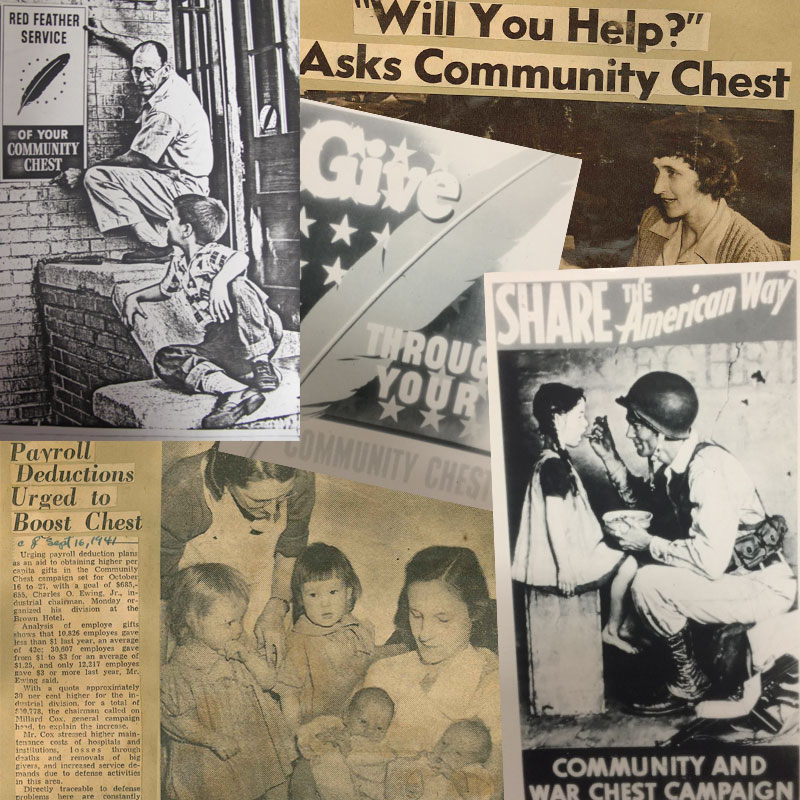

THE 1950's
Chevrolet makes millionth auto in US
The Korean War begins in 1950
Dwight Eisenhower has a heart attack in 1955
Rufus S. Stout, personnel supervisor at National Carbide Corporation, was the first African-American to serve on the Community Chest's Board of Directors. In 1953, Luther Goheen became Executive Director, a position he held until 1964.
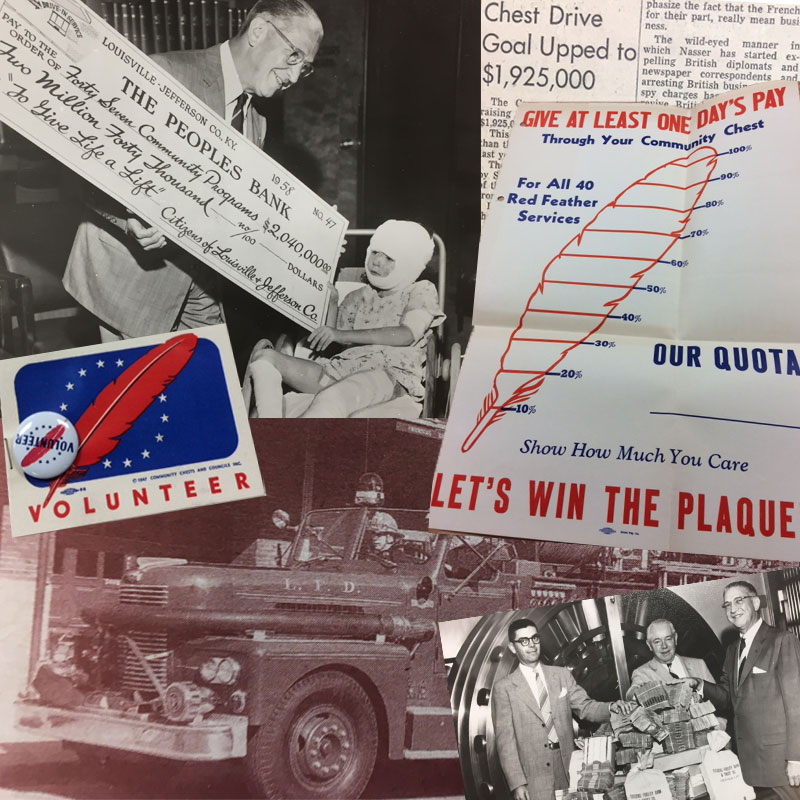

THE 1960's
Cuban missile crisis occurs in 1962
John F. Kennedy was assassinated in 1963; Martin Luther King was assassinated in 1968
The Chest became an integral partner with the local AFL-CIO in the union counseling training program in 1965, which familiarizes counselors with human services available in the community so that they can best assist their members in need.
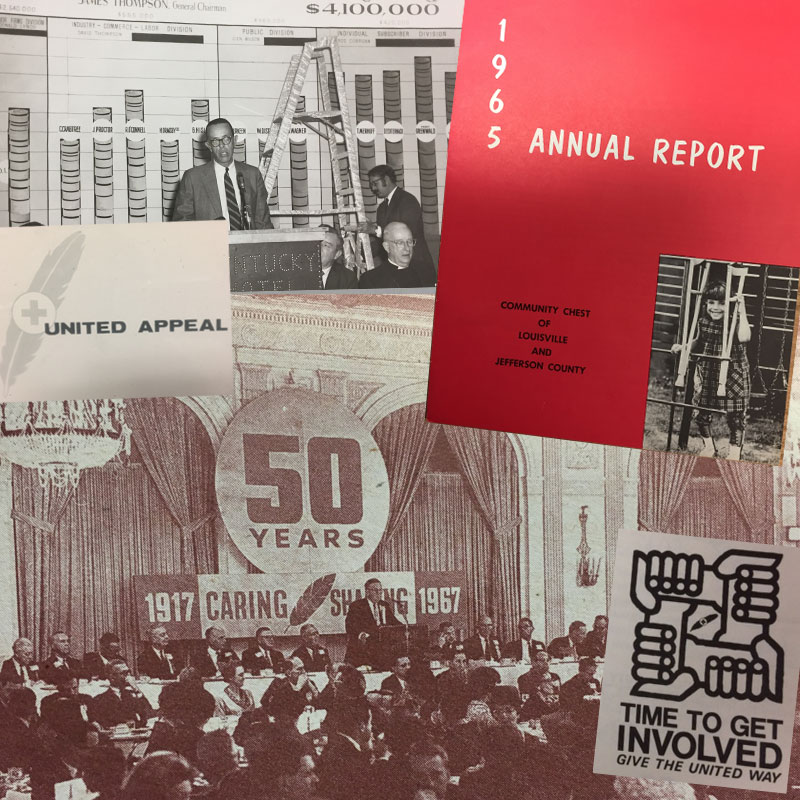

THE 1970's
The Kentucky Civil Liberties Union, Legal Aid Society, and NAACP filed suit in federal court to desegregate the Louisville and Jefferson County school systems in 1971 and 1972.
In 1972, the organization changed its name to Metro United Way to reflect the expansion to serve other counties in Kentucky and Indiana. It merged with United Way of New Albany and Floyd County that same year, and added Shelby County in 1974.
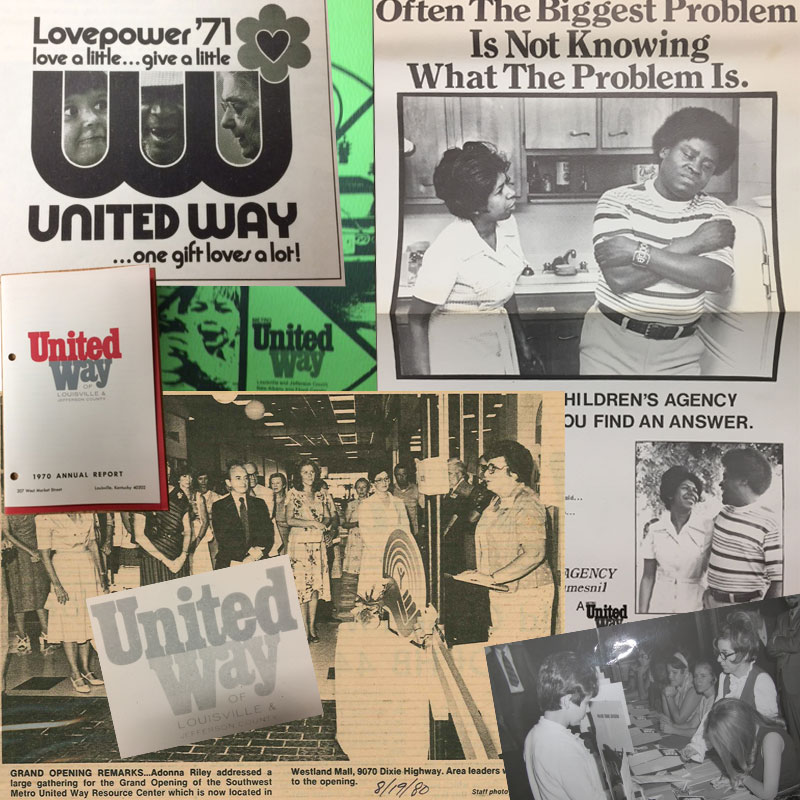

THE 1980's
The Falls of the Ohio was granted status as a Federal conservation area in 1981.
In 1981, Metro United Way sold its historic building on Market Street to Farm Credit Bank and purchased its current home at 334 East Broadway from local philanthropist Jane Morton Norton. This historic building, built in 1917, was formerly known as "House Beautiful", the Baptist Women's Missionary Union. Its immediate past owner was WAVE TV, who had covered the stain glassed Gothic windows in front and earned a critic's description as "the toaster cover look".
The organization grew to include Oldham and Hardin counties in Kentucky in 1986, and Harrison County, Indiana, in 1987.
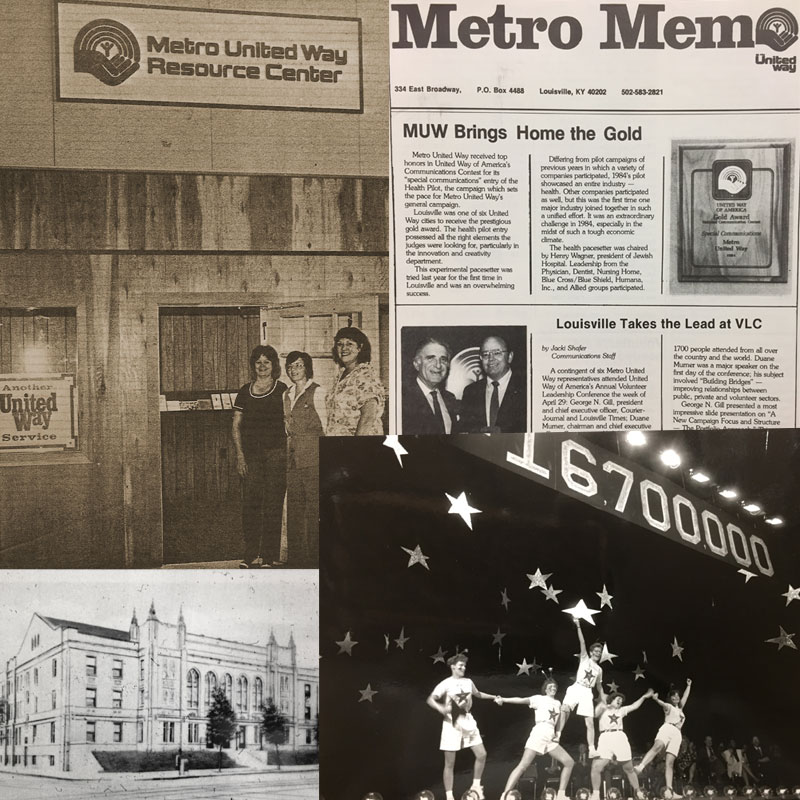

THE 1990's
Thunder Over Louisville officially began in its current location along the Ohio River in 1991 with fireworks, and an annual air show was added in 1992.
In 1991, with Campaign Chair Irving W. Bailey, II at the helm, Metro United Way broke the $20 million mark and Justice William E. McAnulty became the first African-American chair of the Board of Directors. To acknowledge the importance of the contribution of volunteers to Metro United Way throughout its history, the organization established the Continuous Service Leadership Award for Alberta Wood Allen, the daughter-in-law of one of the organization's founders, Charles W. Allen. She became a symbol for volunteer leadership with her 60 years of service and her red plaid suit.
1992 marked Metro United Way's 75th anniversary as well as a crisis involving misuse of funds by the President of United Way of America, the national training and service center for local United Ways. The negative national publicity hurt most local United Ways' campaigns but Metro United Way succeeded in maintaining the same level of contributions as the prior year.
In 1993, United Way of Clark County formally merged with Metro United Way, and Metro United Way held its first Day of Caring, engaging groups of volunteers from local companies in projects to benefit Metro United Way partner agencies.
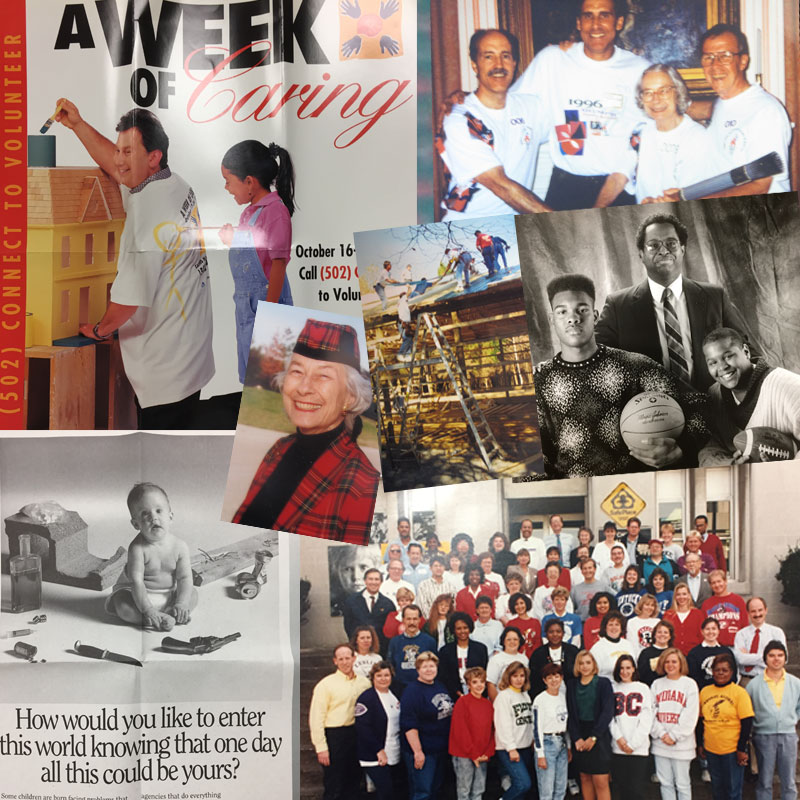

2000 - 2010
DVD players replace VHS; first iPhone launches
Barack Obama is the first African American to be elected President of the US in 2008
In 2001, Joseph P. Tolan becomes President of Metro United Way and Robert Holmes is named Metro United Way's first African-American Campaign Chair. A major giving initiative for women launched - including a $1 million challenge grant match from Ina Brown Bond - as well as a leadership giving initiative for African-Americans. The fundraising campaign kicked off the morning of the September 11th terrorist attacks. The next day, Metro United Way announced a joint cooperative local effort to assist people affected locally as well as to collect and send donations to national relief funds. Bullitt County joined Metro United Way in 2002. In 2006, Metro United Way's 2-1-1 information and referral service was established, and Thelma Ferguson became the first female African-American Board President.
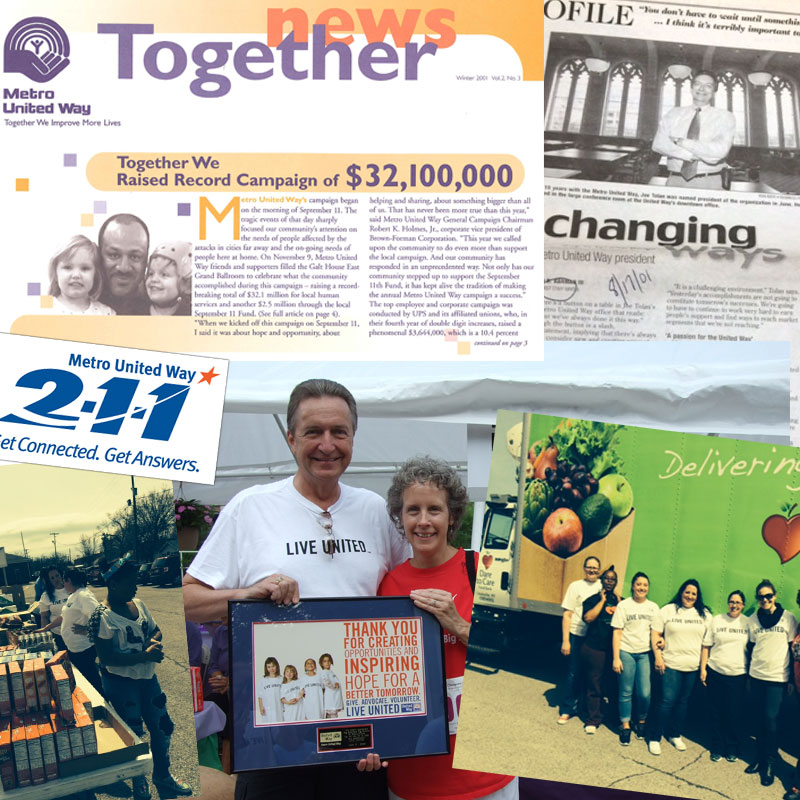

FROM 2011 TO TODAY
Curiosity Rover lands safely on Mars in 2012 for a planned 2 year mission, which has been extended indefinitely and remain actively reporting from Mars today.
In 2011, the entrepreneurial early education initiative "Bridges to Tomorrow" - funded with a Gheens Foundation grant - comes to a close and the learnings transition to the formation of Metro United Way's Excellence Academy early learning program, a partnership with Community Coordinated Child Care and the Lift a Life Foundation.
In 2012, a devastating tornado rips through Southern Indiana, leaving many homes destroyed and individuals and families displaced; Metro United Way forms March2Recovery, a disaster recovery team, with partner organizations to lead volunteer coordination efforts. The Mayor's Give A Day Week of Service begins a new volunteer connection partnership with Metro United Way as the backbone organizer for community acts of compassion.
In 2014, Metro United Way launches BLOCS, a partnership with JCPS, Metro Government and the Alliance For Youth to improve a network of quality out-of-school time programs and access to them by community youth. In 2015, the Ready for K Alliance forms with Metro United Way's leadership to unite community early education partners by the aspiration that all children enter kindergarten ready to learn. Metro United Way also launches LINC (Lead. Impact. Network. Change.) to engage adults 30 and under in meaningful volunteer activities; our Black Male Achievement Initiative begins, awarding grants from an innovation fund to grassroots organizations that positively influence young black males.
2-1-1 launches a new call center partnership with the Center for Women and Families in 2016, and Theresa Reno-Weber begins as President & CEO of Metro United Way in our 100th year, 2017.
